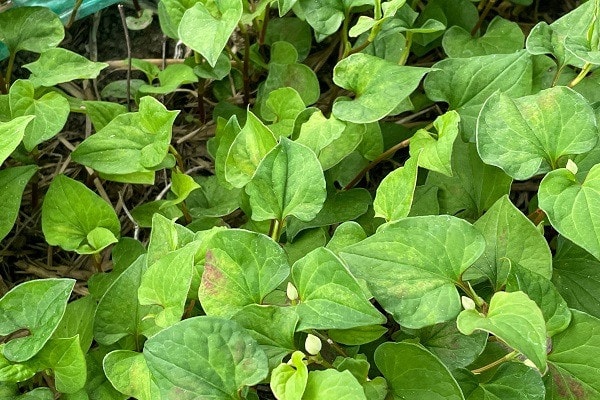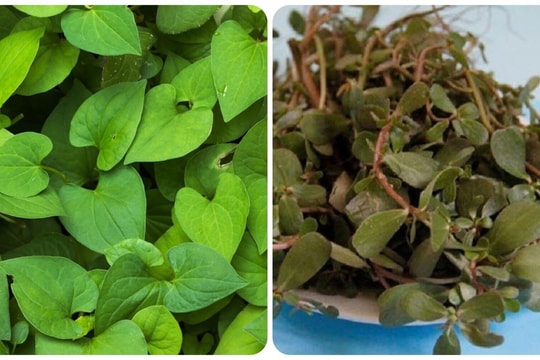Lung-nourishing vegetable grows wild in many places in Vietnam
Fish mint is used to treat viral pneumonia and many other health problems.
Plants have a variety of chemical components and biological activities, which are effective in preventing and treating common clinical diseases. In some Asian countries, people use natural plants for treatment, accounting for 70-95% of basic treatments. One of the plants with such many effects isfish mint.
Fish mint grows wild in Vietnam in moist soil, along streams and ditches. In recent years, people have planted the plant to get its leaves to eat raw, to dip in hot pot, and to squeeze out the juice to drink because of its diuretic and cooling effects.
In many Asian countries such as China, Korea, India, and Japan, fish mint is used both as food and medicine.
This vegetable contains many different chemical components, the most prominent of which is alkaloid. However, the pharmacologically active components are essential oils and flavonoids. The fishy smell of fish mint is due to the presence of decanoyl acetaldehyde, which has antibacterial properties.

Use in traditional medicine
In traditional Chinese medicine, Houttuynia cordata is used as a medicine to treat viral pneumonia. The vegetable has a significant inhibitory effect on the infection and replication of viruses. The anti-inflammatory properties of Houttuynia cordata may be due to its flavonoid, sodium houttuyfonate and polysaccharide components.
In addition, fish mint is also used externally to treat allergies, rashes, hives, indigestion and to treat damaged areas to stimulate bone growth. In clinical treatment, fish mint can often be combined with other drugs to treat dysentery, colds, fever, and mumps.
In Nepal, Houttuynia cordata is used in some herbal preparations for women. The whole plant is considered a coolant, detoxifier, digestive aid and menstrual regulator. The leaves are used to treat dysentery, gonorrhea, skin and eye diseases.
Other effects
According to the US National Library of Medicine, recent studies have found that polysaccharides and sodium houttuyfonate in fish mint protect the intestines. Several other components strengthen the intestinal mechanical barrier and immune barrier.
Recently, natural products in plants have shown effective effects in the prevention and treatment of liver diseases. The ethyl acetate extract of Houttuynia cordata has hepatoprotective effects, showing significant antioxidant activity in rats with liver damage.
The antioxidant components of Houttuynia cordata also have an effect on the process of repairing heart cells. In diabetic mice, continuous drinking of 2% Houttuynia cordata extract for 8 weeks can regulate oxygen levels, inhibiting the negative effects of diabetes on the heart.


